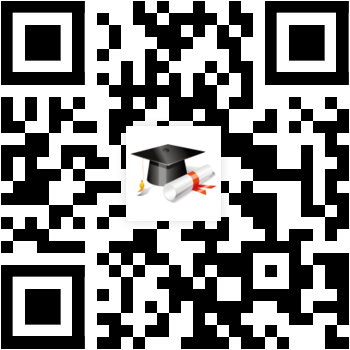2011在职硕士联考英语冲刺模拟附答案(四)
来源:在职研究生招生信息网 发布时间:2011-10-25 11:07:01
Paper One
Part I Dialogue Communication (15 minutes, 15 points)
Section A Dialogue Completion
Directions: In this section, you will read 5 short incomplete dialogues between two speakers, each followed by four choices marked A, B, C and D. Choose the answer that best suits the situation to complete the dialogue. Mark your answer on the ANSWER SHEET with a single line through the center.
1. [A]: Do you mind if I change the channel?
[B]: ___________.
A. Actually, I think this program is quite interesting.
B. Yes, you can switch to the channel you want to watch.
C. Never mind. Just go ahead.
D. Certainly. You can do what you like.
2. [A]: Excuse me, Mr. Smith, but are you free this evening?
[B]: _____________.
A. Well, I'm afraid whether I will be free or not has little to do with you.
B. Yes, welcome to my home this evening.
C. Sorry, I don't like to be asked such a private question.
D. I'm sorry, I have an appointment at seven.
3. [A]: May I see your driving license and vehicle registration card?
[B]: _____________.
A. Sorry, don't write me a ticket.
B. OK. But I was driving at 70 miles per hour.
C. Sure. Did I do anything wrong?
D. Yes. But I don't think I'm a bad driver.
4. [A]: I love your skirt. It's so beautiful on you!
[B]: _____________.
A. Thank you! It's just an ordinary skirt.
B. Oh, really? Do you like it.'? I bought it in Yunnan.
C. Thank you! I'm glad you think so.
D. Oh, no. Your dress looks more beautiful than my skirt.
5. [A]: Look, it's going to storm. Take my umbrella.
[B]: ______________.
How will you go home if you give it to me?
B. I have a raincoat in my office. Thanks anyway.
C. I think you need to use it yourself.
D. It doesn't matter. I will go without having your umbrella.
Section B Dialogue Comprehension
Directions: In this section, you will read 5 short conversations between a man and a woman. At the end of each conversation there is a question followed by four choices marked A, B, C and D. Choose the best answer to the question from the four choices given and mark your answer on the ANSWER SHEET with a single line through the center.
6. Man: It was really rude of you to talk to your dad like that.
Woman: I'm fed up with his complaints. He keeps complaining about my studies.
Man: You should understand his intentions anyway.
Question: What do we know about the woman?
A. She is not clear about her father's intentions.
B. She does not live up to her father's expectations.
C. She is rebellious towards her father.
D. She is tired of her studies.
7. Man: Did you take your children out last weekend?
Woman: Yes. And they had the time of their lives at the amusement park.
Question: What can we learn about the children in the amusement park?
A. The children enjoyed themselves very much.
B. They had a good time for the first time in their lives.
C. They were met with a dangerous situation.
D. They were amused with some breathtaking games.
8. Woman: Would you like to go and see the new exhibit with us?
Man: That is the last thing in the world I ever want to do.
Question: What does the man mean?
A. He saw the exhibit last week.
B. He wants to see the last exhibit.
C. He doesn't want to go and see the new exhibit.
D. The exhibit was new when he saw it last time.
9. Woman: How was the job interview? I think you'll make a good journalist. I remember you as the best writer of the class.
Man: Well, in fact, my application was turned down. They were looking for people with experience in the profession.
Question: Why didn't the man get the job?
A. He is not experienced. B. He no longer writes well.
C. He was late in turning in his application. D. His job interview failed.
10. Man: I'm still in the dark about what Bob has been doing these days.
Woman: He is up to no good, you bet, He has a history.
Man: Do you think the teacher knows what he has been doing?
Woman: Yes, she does. But she just turns a blind eye.
Question: What is true about the conversation?
A. Bob is a gambler.
B. The man has no idea about Bob's recent doings.
C. Bob does not behave well in history class.
D. Bob's teacher has eye problems.
Part Ⅱ Vocabulary and Structure (20 minutes, 10 points)
Directions: There are 20 incomplete sentences in this section. For each sentence there are 4 choices marked A, B, C and D. Choose the one that best completes the sentence. Mark your answer on the ANSWER SHEET with a single line through the center.
11. I will not spend so much money on that fur coat, for I don't think it is _________.
A. worth buying B. worth to buy C. worthy buying D. worthy of buy
12. Oh, what a nuisance! It ___________ so easy for me to bring those photographs I wanted to show you, and I have left them on the table at home.
A. would have been B. had been C. would be D. was
13. Look at the terrible situation I am in! If only I ___________ your advice.
A. follow B. had followed C. would follow D. have followed
14. Had he worked harder, he ____________ the exams.
A. must have got through B. would have got through
C. would get through D. could get through
15. Wouldn't you rather your child ___________ to bed early?
A. go B. went C. would go D. goes
16. Eugene resents his mother's insistence that he ___________ to church.
A. go B. went C. would go D. ought to go
17. I ___________ the party much more if there hadn't been quite such a crowd of people there.
A. would enjoy B. will have enjoyed
C. would have enjoyed D. will be enjoying
18. "May I speak to your manager Mr. Williams at five o'clock tonight?" "I'm sorry. Mr. Williams __________ to a conference long before then."
A. will have gone B. had gone C. would have gone D. has gone
19. If the United States had not entered tile Second World War, probably the unemployment rate
___________ still further.
A. would rise B. should rise C. would have risen D. had risen
20. If Tom wins tomorrow, he ___________ thirty races in the past four years.
A. will win B. has won C. would have won D. will have won
21. Giorgio, now fifteen, and Lucia, also in her teens, were reaching the _________ of their adolescence.
A. crisis B. criterion C. causality D. credibility
22. At first Jackie prayed, frozen in fear, but gradually his terror_______ curiosity.
A. put up with B. lived up to C. did away with D. gave way to
23. The International Olympic Committee rejects the accusations that Beijing's budget-cutting move might ____________ its preparation for the games.
A. degrade B. deliberate C. deploy D. defend
24. You are not allowed to take a second job________ your employer gives you permission.
A. so long as B. otherwise C. unless D. whereas
25. They continued to __________ about and enjoy themselves until they became tired.
A. stroke B. stroll C. stammer D. string
26. The survey asked 750 school children about the values and beliefs they __________ from television.
A. pick up B. take up C. put up D. make up
27. I am grateful for your ___________ invitation, and I'd like to accept your offer with pleasure.
A. delighted B. innocent C. gracious D. prestigious
28. I must _________ you farewell right now, but on some future occasion, I hope to see you again.
A. relay B. bid C. send D. deliver
29. Perhaps my dishes will not be as delicious as those which you are accustomed to eating, but I beg you to grant my ____________ and have dinner with me.
A. resentment B. requirement C. request D. reservation
30. That singular achievement was not just about Korea's arrival as a football force but as a self-confident mature nation to be ________ seriously.
A. coped B. shown C. established D. taken
Part Ⅲ Reading Comprehension (40 minutes, 40 points)
Directions: There are 4 passages in this part. Each of the passage is followed by 5 questions or unfinished statements. For each of them there are 4 choices marked A, B, C and D. Choose the best one and mark your answer on the ANSWER SHEET with a single line through the center.
Passage One
Some pessimistic experts feel that the automobile is bound to fall into disuse. They see a day in the not-too-distant future when all autos will be abandoned and allowed to rust. Other authorities, however, think the auto is here to stay. They hold that the car will remain a leading means of travel in the foreseeable future.
The motorcar will undoubtedly change significantly over the next 30 years. It should become smaller, safer, and more economical, and should not be powered by the gasoline engine. The car of the future should be far more pollution-free than present types.
Regardless of its power source, the auto in the future will still be the main problem in urban traffic congestion(拥挤). One proposed solution to this problem is the automated highway system.
When the auto enters the highway system, a retractable (可伸缩的) arm will drop from the auto and make contact with a rail, which is similar to those powering subway trains electrically. Once attached to the rail, the car will become electrically powered from the system, and control of the vehicle will pass to a central computer. The computer will then monitor all of the car's movements.
The driver will use a telephone to dial instructions about his destination into the system. The computer will calculate the best mute, and reserve space for the car all the way to the correct exit from the highway. The driver will then be free to relax and wait for the buzzer(蜂鸣器) that will warn of his coming exit. It is estimated that an automated highway will be able to ban 10,000 vehicles per hour, compared with the 1,400 to 2,000 vehicles that can be carried by a present-day highway.
31. One significant improvement in the future car will probably be ______________.
A. its power source B. its driving system
C. its monitoring system D. its seating capacity
32. What is the author's main concern?
A. How to render automobiles pollution-free.
B. How to make smaller and safer automobiles.
C. How to solve the problem of traffic jams.
D. How to develop an automated subway system.
33. What provides autos with electric power in an automated highway system?
A. A rail. B. An engine.
C. A retractable ann. D. A computer controller.
34. In an automated highway system, all the driver needs to do is ____________.
A. keep in the right lane
B. wait to arrive at his destination
C. keep in constant touch with the computer center
D. inform the system of his destination by phone
35. What is the author's attitude toward the future of autos?
A. Enthusiastic. B. Pessimistic.
C. Optimistic. D. Cautious.
Passage Two
Do you know that all human beings have a "comfortable zone" regulating the distance they stand from someone when they talk? This distance varies in interesting ways among people of different cultures.
Greeks, others of the Eastern Mediterranean, and many of those from South America normally stand close together when they talk, often moving their faces even closer as they warm up in a conversation. North Americans find this awkward and often back away a few inches. Studies have found that they tend to feel most comfortable at about 21 inches apart. In much of Asia and Africa, there is even more space between two speakers in conversation. This greater space subtly lends an air of dignity and respect. This matter of space is nearly always unconscious, but it is interesting to observe.
This difference applies also to the closeness with which people sit together, the extent which they lean over one another in conversation, how they move as they argue, or make an emphatic point. In the United States, for example, people try to keep their bodies apart even in a crowded elevator; in Paris they take it as it comes!
Although North Americans have a relatively wide "comfortable zone" for talking, they communicate a great deal with their hands — not only with gestures but also with touch. They put a sympathetic hand on a person's shoulder to demonstrate warmth of feeling or an arm around him in sympathy; they nudge a man in the ribs to emphasize a funny story; they pat an arm in reassurance or stroke a child's head in affection, they readily take someone's arm to help him across a street or direct him along an unfamiliar route. To many people — especially those from Asia or the Moslem countries — such bodily contact is unwelcome, especially if inadvertently done with the left hand. (The left hand carries no special significance in the U. S. Many Americans are simply left handed and use that hand more. )
36. In terms of bodily distance, North Americans ____________.
A. are similar to South Americans
B. stand farthest apart
C. don't feel at ease when too close
D. move nearer during conversations
37. For Asians, the comfortable zone _____________.
A. is deliberately determined
B. measures 21 inches
C. varies according to status
D. implies esteem
38. It can be inferred from the passage that in a crowded elevator, a Frenchman would __________.
A. behave in the same way as an American would
B. make no particular effort to distance himself
C. be afraid of bodily contact
D. do his best to leave
39. When Americans tell a joke, they often ___________.
A. pat people on the head
B. give people a hug
C. dig people in the ribs
D. touch people on the arm
40. What does the passage mainly concern?
A. It concerns distance and bodily contact.
B. It concerns body language.
C. It concerns cultural differences between the East and the West.
D. It concerns hand signals.
Passage Three
For an increasing number of students at American universities, Old is suddenly in. The reason is obvious: the graying of America means jobs. Coupled with the aging of the baby-boom (生育高峰) generation, a longer life span means that the nation's elderly population is bound to expand significantly over the next 40 years. By 2040, 25 percent of all Americans will be older than 65, up from 14 percent in 1995. The change poses profound questions for government and society, of course. But it also creates career opportunities in medicine and health professions, and in law and business as well. "In addition to the doctors, we're going to need more sociologists, biologists, urban planners and specialized lawyers," says Professor Edward Schneider of the University of Southern California's ( USC ) School of Gerontology (老年学).
Lawyers can specialize in "elder law", which covers everything from trusts and estates to nursing-home abuse and age discrimination (歧视). Businessmen see huge opportunities in tile elder market because the baby boomers, 74 million strong, are likely to be the wealthiest group of retirees in human history.. "Any student who combines an expert knowledge in gerontology with, say, an MBA or law degree will have a license to print money," one professor says.
Margarite Santos is a 21-year-old senior at USC. She began college as a biology major but found She was "really bored with bacteria." So she took a class in gerontology and discovered that she liked it. She says, "I did volunteer work in retirement homes and it was very satisfying."
41. "... Old is suddenly in"(Line 1, Para. 1) most probably means __________.
A. America has suddenly become a nation of old people
B. gerontology has suddenly become popular
C. name elderly professors are found on American campuses
D. American colleges have realized the need of enrolling older students
42. With the aging of America, lawyers can benefit ____________.
A. from the adoption of the "elder law"
B. from rendering special services to the elderly
C. by enriching their professional knowledge
D. by winning the trust of the elderly to promote their own interests
43. Why can businessmen make money in the emerging elder market?
A. Retirees are more generous in spending money.
B. They can employ more gerontologists.
C. The elderly possess an enormous purchasing power.
D. There are more elderly people working than before.
44. Who can make big money in the new century according to the passage?
A. Retirees who are business-minded.
B. The volunteer workers in retirement homes.
C. College graduates with an MBA or law degree.
D. Professionals with a good knowledge of gerontology.
45. It can be seen from the passage that the expansion of America's elderly population ___________.
A. will provide good job opportunities in many areas
B. will impose an unbearable burden on society
C. may lead to nursing home abuse and age discrimination
D. will create new fields of study in universities
Passage Four
The decline in moral standards — which has long concerned social analysts — has at last captured the attention of average Americans. And Jean Bethke Elshtain, for one, is glad.
The fact that ordinary citizens are now starting to think seriously about the nation's moral climate, says this ethics(伦理学) professor at the University of Chicago, is reason to hope that new ideas will come forward to improve it.
But the challenge is not to be underestimated. Materialism and individualism in American society are the biggest obstacles. "The thought that I'm in it for me has become deeply rooted in the national consciousness," Ms. Elshtain says.
Some of this can be attributed to the disintegration of traditional communities, in which neighbors looked out for one another, she says. With today's greater mobility and with so many couples working, those bonds have been weakened, replaced by a greater emphasis on self.
In a 1996 poll of Americans, loss of morality topped the list of the biggest problems facing the U.S. And Elshtain says the public is correct to sense that: Data show that Americans are struggling with problems unheard of in the 1940s, such as classroom violence and a high rate of births to unmarried mothers.
The desire for a higher moral standard is not a lament (挽歌) for some nonexistent "golden
age", Elshtain says, nor is it a wishful (一厢情愿的) longing for a time that denied opportunities
to women and minorities. Most people, in fact, favor the lessening of prejudice.
Moral decline will not be reversed until people find ways to counter the materialism in society, she says. "Slowly, you recognize that the things that matter are those that can't be bought.'
46. Professor Elshtain is pleased to see that Americans
A. have adapted to a new set of moral standards
B. am longing for the return of the good old days
C. have realized the importance of material things
D. are awakening to the lowering of their moral standards
47. The moral decline of American society is caused mainly by
A. its growing wealth
B. the self-centeredness of individuals
C. underestimating the impact of social changes
D. the prejudice against women and minorities
48. Which of the following characterizes the traditional communities?
A. Great mobility. B. Concern for one's neighbors.
C. Emphasis on individual effort. D. Ever-weakening social bonds.
49. In the 1940s, classroom violence ____________.
A. was something unheard of B. was by no means a rare occurrence
C. attracted a lot of public attention D. began to appear in analysts' data
50. According to Elshtain, the current moral decline may be reversed ____________.
A. if people can return to the "golden age"
B. when women and men enjoy equal rights
C. when people rid themselves of prejudice
D. if less emphasis is laid on material things
Part Ⅳ Cloze Test (15 minutes, 10 points)
Directions: There are 10 blanks in the following passage. For each numbered blank, there are 4 choices marked A, B, C and D. Choose the best one and mark your answer on the ANSWER SHEET with a single line through the center.
Industrial safety does not just happen. Companies 51 low accident rates plan their safety programs, work hard to organize them, and continue working to keep them 52 and active. When the work is well done, a 53 of accident-free operations is established 54 time lost due to injuries is kept at a minimum.
Successful safety programs may 55 greatly in the emphasis placed on certain aspects of the program. Some place great emphasis on mechanical guarding. Others stress safe work practices by 56 rules or regulations. 57 others depend on an emotional appeal to the worker. But, there are certain basic ideas that must be used in every program if maximum results are to be obtained.
There can be no question about the value of a safety program. From a financial stand-point alone, safety 58 . The fewer the injury 59 , the better the workman's insurance rate. This may mean the difference between operating at 60 or at a loss.
51. A. at B. in C. on D. with
52. A. alive B. vivid C. mobile D. diverse
53. A. regulation B. climate C. circumstance D. requirement
54. A. where B. how C. what D. unless
55. A. alter B. differ C. shift D. distinguish
56. A. constituting B. aggravating C. observing D. justifying
57. A. Some B. Many C. Even D. Still
58. A. comes off B. turns up C. pays off D. holds up
59. A. claims B. reports C. declarations D. proclamations
60. A. an advantage B. a benefit C. an interest D. a profit
Paper Two
Part V Translation (30 minutes, 10 points)
Directions: Translate the following passage into Chinese and put your translation on the ANSWER SHEET.
Electronic mail has been in widespread use for more than a decade, simplifying the flow of ideas, connecting people from distant offices and eliminating the need for meetings, but e-mail should be carefully managed to avoid unclear and inappropriate communication. As time goes on and more people surf the Net, the amount of unsolicited e-mail grows. Some folks reasonably assume that cyberspace mirrors many aspects of other forms of communications. It would seem that since telemarketing and direct mail are successfully used as marketing techniques for many businesses, it should follow that direct e-mail or unsolicited e-mail should also work. This topic is hotly debated between experienced Internet users and newcomers.
Unlike receiving promotional materials through the mail or over the phone, e-mail does carry a cost to the recipient. "Bandwidth" is used every time when an e-mail message is sent and places a load on existing resources.
Part Ⅵ Writing (30 minutes, 15 points)
Directions: For this part, you are asked to write a composition on the topic "It Pays to Be Honest".
Your composition should be no less than 120 words based on the given outline. Remember write clearly on the ANSWER SHEET.
Outline:
1. Honest is the best policy.
2. Give examples to support your point of view.
3. Conclusion.
参考答案
题号 1 2 3 4 5 6 7 8 9 10 11 12 13 14 15 16 17 18 19 20
答案 A D C C B B A C A B A A B B B A c A C D
题号 21 22 23 24 25 26 27 28 29 30 31 32 33 34 35 36 37 38 39 40
答案 A D A C B A C B C B A C A D C C D B C A
题号 41 42 43 44 45 46 47 48 49 50 51 52 53 54 55 56 57 58 59 60
答案 B B C D A D B B A D D A B A B C D C A D
Part V Translation(30 minutes,10 points)
电子邮件得到广泛应用已超过十多年,它让思想的交流简单便捷,让相隔遥远的办公人员相互联系,让会议的召开失去必要。不过为了避免不明和不当的交流,电子邮件应谨慎使用。随着时间的推移以及更多的人上网,主动发送的电子邮件数量在增多。一些人理所当然地认为,网络空间反映出其他交流形式的诸多方面。情况似乎是,既然电话营销和直接寄送邮件被成功地用作许多企业的营销技巧,那么直接的或主动发送的电子邮件营销也应该可行。在经验丰富的互联网用户和新用户之间,这个话题争论得很激烈。
与通过邮件或电话接到促销材料不一样,电子邮件确实给接收者带来费用。每次发电子邮件都使用“带宽”,给现有资源带来负担。
Writing:
【参考范文】
It Pays to Be Honest
Some people believe that honest people are fools whose ways of dealing with the outside world are out of date. But in my opinion, without honesty, there would be no respect, no trust, no law---and finally, no society.
For example, in university, it is impossible for supervisors to advise their students all the time because their time is quite limited, so the students need to do most of the research. If students spend a good deal of time and patience doing research honestly, that will not only bring them improvement in studies, but also will lead to mutual trust and respect between students and supervisors.
These statements support an unshakable view that honesty is the best policy for all of us. It can not only win trust and respect from others, but also bring us more opportunities in the future. It is something we cannot live without.





















